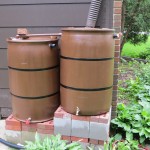We are interested learning which municipal policies are most effective in reducing household water consumption. Policies such as outright water restrictions, or changes to water tariffs are often difficult measures to implement and unrealistic for municipal water planners, even in drought conditions.
As a result, there is increased interest in understanding the impact of other water conservation strategies, many of them voluntary, based on information campaigns, technological improvements or norm-based measures. When confronted with water shortages, municipal governments throughout North America have frequently relied on these voluntary measures to reduce water use. Yet the precise impact of these measures remains unclear.
The Water Planning Lab is looking forward to partner with a municipal government in the Vancouver region to test how different messaging strategies might reduce water use among residential users. If the water conservation campaign is rolled out with an experimental design, we would be able to quantify the program’s impact and contribute to the evidence-base for water conservation policies.